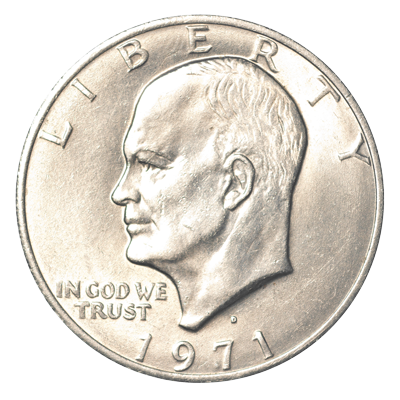Emerging from the scariest Recession (note the capital “R”) in three generations, America seems to be enjoying a well- mannered economic recovery the likes of which were probably last seen in the 1950’s. Let’s summarize the good news, for those of you too impatient to read this entire blog post:
- Low inflation — should continue
- Low interest rates — little risk of a sharp rise
- Rising employment — New jobs are being created at the rate of over 200,000 per month
- Good consumer confidence — people are spending on cars, remodeling, dining out and vacationing again
- Buoyant stock market
- Buoyant housing market
- Buoyant retail sales
- Complacency – there does not appear to be a likelihood of some great social upheaval as in the 1960’s and 1970’s
In the Quarter that has just passed…
America’s economic recovery appears to be gaining momentum, equities markets peaked during the summer and have struggled for the past few weeks. Major equity indexes achieved historic highs, and then surrendered most of their gains to turn in a mildly positive return, with the Standard & Poor’s 500 was up just over 1%. The hardest hit sectors in the just passed quarter were energy and utilities, the two sectors to which Trusted Financial client accounts are most exposed. The damage was mitigated by corporate action that sent one of our largest positions, Kinder Morgan LLS, substantially higher.
During the last few days of the quarter, another widely held position, PIMCO Total Return fund was liquidated, after many years of ownership for some folks. Total Return is the signature fund of the “Bond King” Bill Gross, who left PIMCO (some say he was pushed) with little warning. While we prefer owning bonds and stocks directly, rather through funds, Gross is one of only a handful of star mutual fund managers to whom I’ve entrusted some client funds over the years. I did not feel comfortable leaving client money with the largely unknown team that has succeeded him at PIMCO and have not decided whether to get involved with a Janus fund he will not be heading.
As a result of these changes most clients now hold the largest allocation to “cash” in over a year. The markets are backing and filling right now, perhaps presenting some “value” opportunities for that cash.
Goldilocks and the Russian Bear
So far, it is a “Goldilocks” economic picture, domestically, for investors: low inflation with little prospect of its return, low interest rates that make home borrowing and business expansion affordable, a steadily recovering housing market and consumers spending their money once again. While weak energy prices have hurt some of our specific holdings, cheap energy is a boon to the overall economy. We have recently added our first portfolio position in the Travel and Leisure industry and expanded in an industry that benefits from business capital spending, as we believe that corporate America is again investing in new hiring of personnel and investment in plant and equipment. This new interest in long term investment by business suggests years of forward momentum remain for the US economy.
The situation is not without uncertainty. Foreign hot spots, any one of which could hurt investor sentiment, abound: If Russia’s Putin continues to steal from and threaten his immediate neighbors, sanctions on trade between Europe and Russia will slow down the world’s commercial growth trajectory. Likewise, China is now under the leadership of a hawk determined to reduce, rather than expand its imports from outside the nation. The import least wanted by Chinese oligarchs is democracy. The yearnings for the dignity of democracy by people in Hong Kong remind us of how precious is our own heritage.
Meanwhile, south of the border, Argentina, which expropriated a foreign oil company and refuses to honor its national debt, is being locked out of the international financial community; the Brazilian miracle has lost its shine under a now less-than-popular socialist leader who is trying to gut Brazil’s independent central bank (a fond desire of demagogues in this country as well).
Finally, fiscally conservative investors who were dismayed at the $1 trillion price tag for the invasion of Iraq, America’s costliest military engagement, are not happy to watch the US country being sucked into the quicksand of the Middle East once again.
The explosion of international uncertainties seems to have occasioned two reactions: US equity investors hitting the “pause” button, and international speculators buying up dollars while selling other currencies short. As ominous as this all sounds, it is remarkable that the United States’ foreign trade deficit is shrinking.
Inflation? Not to Worry!
High inflation is the enemy of retirees and those hoping to get ahead of ever rising prices. Contrary to monetarists and hard money advocates, massive credit creation by the Federal Reserve has, miraculously not resulted in currency debasement and runaway inflation…so far. Evidence that inflation is unlikely to accelerate for some time comes from a variety of factors: commodity prices, especially energy prices are falling, as discussed above, due to a malaise in many developing nations and Europe. Labor costs continue to be moderate, and hiring, while up, is still below its pre-recession pace. Capital Spending: Key to Continued Forward Momentum Improved consumer confidence has its counterpart in business confidence. Business hiring is up, and so is investment in new computers, robots, delivery trucks, warehouses, pipelines, etc. Goldman Sachs is predicting that “Fixed Investment” in the USA will run at a 6% growth rate this year rising to about 7% over the following two years – this matches the expected Fixed Investment rate for China! Businesses that benefit from an expanding business cycle are called “cyclical” companies. They also are among the first to lose value as recession fears arise. As conservative value/income oriented investors, Trusted Financial Advisors tends to emphasize companies that are fairly insulated from the business cycle, like utilities and healthcare. However, I began adding cyclical stocks to client portfolios about three years ago and continue to carefully expand this exposure. While I’m confident we will enjoy at least two more years of an expanding economy, the trick will be to know when to sell these more volatile holdings. If you care to read what I was writing twelve or so years ago, you will see that comparing current stock prices to intrinsic value has served our clients well when past bull markets were nearing an end (most notably during the Tech Bubble). I expect this approach to help us retain most of the future gains I’m anticipating for our clients. [1] For an interesting perspective on unemployment during Presidential terms from Reagan to Obama check out this article: Public and Private Sector Payroll Jobs: Carter, Reagan, Bush, Clinton, Bush, Obama

